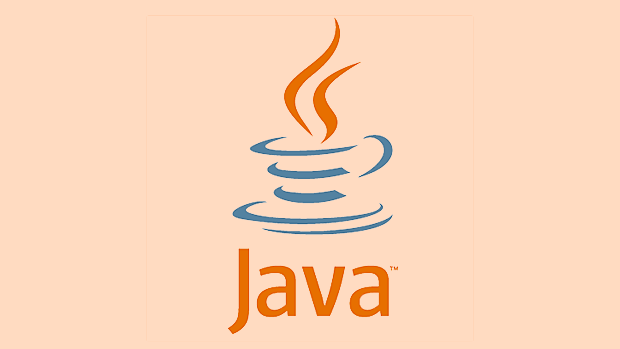In Java, enums are suitable for representing fixed constant sets. Best practices include: 1. Use enum to represent fixed state or options to improve type safety and readability; 2. Add properties and methods to enums to enhance flexibility, such as defining fields, constructors, helper methods, etc.; 3. Use EnumMap and EnumSet to improve performance and type safety because they are more efficient based on arrays; 4. Avoid abuse of enums, such as dynamic values, frequent changes, or complex logic scenarios, which should be replaced by other methods. Correct use of enum can improve code quality and reduce errors, but you need to pay attention to its applicable boundaries.

In Java programming, enums are a very practical feature, especially suitable for representing a fixed set of constants. But many people simply use it to replace constant classes. In fact, there are some notable best practices for using enum well.

1. Use Enum to indicate a fixed state or option
When you need to represent a limited and unchanging set of options, such as order status, gender, color, etc., using enum is the most suitable choice.

public enum OrderStatus {
PENDING, PROCESSING, SHIPPED, DELIVERED, CANCELLED;
}The benefits of writing this are clear, type-safe, and avoiding the problems of magic strings or magic numbers. Enum provides better readability and maintenance than using integer or string constants.
suggestion:

- Give enum values ??meaningful names
- Do not modify the existing enum value order at will (it will affect serialization)
- If you need to describe information, you can add fields and construct methods
2. Add properties and methods to Enum
Enumerations can not only have names, but also fields, constructors, and methods, which makes it more like a complete class.
For example, add an RGB value to each color:
public enum Color {
RED(255, 0, 0),
GREEN(0, 255, 0),
BLUE(0, 0, 255);
private final int r, g, b;
Color(int r, int g, int b) {
this.r = r;
this.g = g;
this.b = b;
}
public String toHexString() {
return String.format("# XXX", r, g, b);
}
}This writing makes enumeration more flexible and easier to expand functionality. You can even define abstract methods and then implement different behaviors in each enum value.
Common practices include:
- Adding toString method to facilitate log output
- Helper methods that define fromString or valueOf
- Add comments to explain the purpose of each value
3. Improve performance and type safety using EnumMap and EnumSet
Java provides collection classes EnumMap and EnumSet designed specifically for enumerations. They are more efficient than ordinary HashMap/HashSet because they use array indexing to process enum values.
For example, counting the number of user operation types:
Map<OperationType, Integer> counts = new EnumMap<>(OperationType.class);
Advantages:
- Faster access speed
- Type-safe, avoid error keys
- Lower memory footprint
Notice:
- EnumMap requires that the key must be of the same enum type
- EnumSet can only store enum values, and cannot mix other types
4. Avoid abuse of Enum
Although enum is very convenient, it is not suitable for use in every place. If you find that an enum changes frequently or has a lot of values, it may not be suitable for using enum.
Some anti-patterns include:
- Hard-code the configuration item into enum
- Enumeration values ??are loaded dynamically from the database
- Enumeration contains too many logic or complex state machines
At this time, it is more suitable to use ordinary factory methods or database configuration tables to manage.
Basically that's it. enum is a small and powerful tool in Java. It can improve code quality and reduce bugs if used well. But don't forget that its essence is a set of constants, and don't treat it as a universal solution.
The above is the detailed content of Best Practices for Using Enums in Java. For more information, please follow other related articles on the PHP Chinese website!

Hot AI Tools

Undress AI Tool
Undress images for free

Undresser.AI Undress
AI-powered app for creating realistic nude photos

AI Clothes Remover
Online AI tool for removing clothes from photos.

Clothoff.io
AI clothes remover

Video Face Swap
Swap faces in any video effortlessly with our completely free AI face swap tool!

Hot Article

Hot Tools

Notepad++7.3.1
Easy-to-use and free code editor

SublimeText3 Chinese version
Chinese version, very easy to use

Zend Studio 13.0.1
Powerful PHP integrated development environment

Dreamweaver CS6
Visual web development tools

SublimeText3 Mac version
God-level code editing software (SublimeText3)

Hot Topics
 Selecting Specific Columns | Performance Optimization
Jun 27, 2025 pm 05:46 PM
Selecting Specific Columns | Performance Optimization
Jun 27, 2025 pm 05:46 PM
Selectingonlyneededcolumnsimprovesperformancebyreducingresourceusage.1.Fetchingallcolumnsincreasesmemory,network,andprocessingoverhead.2.Unnecessarydataretrievalpreventseffectiveindexuse,raisesdiskI/O,andslowsqueryexecution.3.Tooptimize,identifyrequi
 What is the `enum` type in Java?
Jul 02, 2025 am 01:31 AM
What is the `enum` type in Java?
Jul 02, 2025 am 01:31 AM
Enums in Java are special classes that represent fixed number of constant values. 1. Use the enum keyword definition; 2. Each enum value is a public static final instance of the enum type; 3. It can include fields, constructors and methods to add behavior to each constant; 4. It can be used in switch statements, supports direct comparison, and provides built-in methods such as name(), ordinal(), values() and valueOf(); 5. Enumeration can improve the type safety, readability and flexibility of the code, and is suitable for limited collection scenarios such as status codes, colors or week.
 Applying Semantic Structure with article, section, and aside in HTML
Jul 05, 2025 am 02:03 AM
Applying Semantic Structure with article, section, and aside in HTML
Jul 05, 2025 am 02:03 AM
The rational use of semantic tags in HTML can improve page structure clarity, accessibility and SEO effects. 1. Used for independent content blocks, such as blog posts or comments, it must be self-contained; 2. Used for classification related content, usually including titles, and is suitable for different modules of the page; 3. Used for auxiliary information related to the main content but not core, such as sidebar recommendations or author profiles. In actual development, labels should be combined and other, avoid excessive nesting, keep the structure simple, and verify the rationality of the structure through developer tools.
 What is the JDK?
Jun 25, 2025 pm 04:05 PM
What is the JDK?
Jun 25, 2025 pm 04:05 PM
JDK (JavaDevelopmentKit) is a software development environment for developing Java applications and applets. It contains tools and libraries required to compile, debug and run Java programs. Its core components include Java compiler (javac), Java runtime environment (JRE), Java interpreter (java), debugger (jdb), document generation tools (javadoc) and packaging tools (such as jar and jmod). Developers need JDK to write, compile Java code and develop with the help of IDE; without JDK, Java applications cannot be built or modified. You can enter javac-version and java-version in the terminal
 VSCode debugger for Java setup guide
Jul 01, 2025 am 12:22 AM
VSCode debugger for Java setup guide
Jul 01, 2025 am 12:22 AM
The key steps in configuring the Java debugging environment on VSCode include: 1. Install JDK and verify; 2. Install JavaExtensionPack and DebuggerforJava plug-in; 3. Create and configure the launch.json file, specify mainClass and projectName; 4. Set up the correct project structure to ensure the source code path and compilation output are correct; 5. Use debugging techniques such as Watch, F8/F10/F11 shortcut keys and methods to deal with common problems such as class not found or JVM attachment failure.
 XML rules: Common errors to avoid
Jun 22, 2025 am 12:09 AM
XML rules: Common errors to avoid
Jun 22, 2025 am 12:09 AM
Methods to avoid XML errors include: 1. Ensure that the elements are nested correctly, 2. Escape special characters. Correct nesting avoids parsing errors, while escape characters prevent document corruption, using an XML editor can help maintain structural integrity.
 Windows search bar not typing
Jul 02, 2025 am 10:55 AM
Windows search bar not typing
Jul 02, 2025 am 10:55 AM
When the Windows search bar cannot enter text, common solutions are: 1. Restart the Explorer or computer, open the Task Manager to restart the "Windows Explorer" process, or restart the device directly; 2. Switch or uninstall the input method, try to use the English input method or Microsoft's own input method to eliminate third-party input method conflicts; 3. Run the system file check tool, execute the sfc/scannow command in the command prompt to repair the system files; 4. Reset or rebuild the search index, and rebuild it through the "Index Options" in the "Control Panel". Usually, we start with simple steps first, and most problems can be solved step by step.
 How do I set up VS Code for Java development?
Jun 29, 2025 am 12:23 AM
How do I set up VS Code for Java development?
Jun 29, 2025 am 12:23 AM
To use VSCode for Java development, you need to install the necessary extensions, configure the JDK and set up the workspace. 1. Install JavaExtensionPack, including language support, debugging integration, build tools and code completion functions; optional JavaTestRunner or SpringBoot extension package. 2. Install at least JDK17 and verify through java-version and javac-version; set the JAVA_HOME environment variable, or switch multiple JDKs in the status bar at the bottom of VSCode. 3. After opening the project folder, make sure the project structure is correct and enable automatic saving, adjust the formatting rules, enable code checking, and configure the compilation task to optimize the opening.






